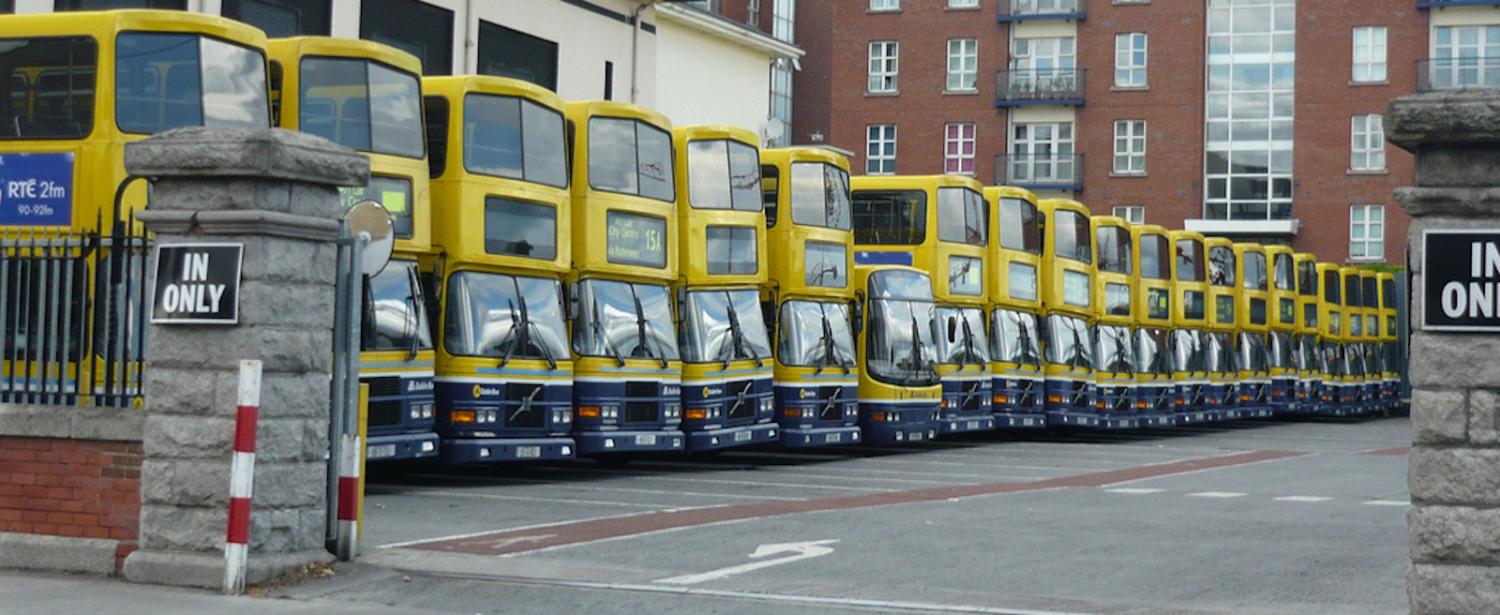With Prime Minister Teresa May’s Brexit withdrawal deal rejected this week by the House of Commons, the future of the United Kingdom’s exit from the European Union remains as uncertain as ever.
Possible scenarios include a further vote on the deal, an exit with no deal agreed, an extension of the time period beyond 29 March for agreement on a deal under Article 50 of the Lisbon Treaty, and potentially a second referendum.
The surge in passport applications has been accompanied by a considerable increase in British emigration to Ireland.
While the United Kingdom remains deeply divided on the issue, many of its citizens are making their own contingency plans, seeking to minimize any negative impacts of Brexit and to preserve the benefits of UK membership of the EU. Many UK citizens with rights to dual or multiple nationalities are seeking citizenship of the other country or countries where they have such rights.
Ireland, in particular, has experienced a surge in British applications for passports. According to the Irish Department of Foreign Affairs, almost 190,000 Irish passport applications were received from the UK in 2018. The figures for 2018 represented 12% of all passport applications received in what the department described as a record-breaking year in terms of applications, compared to approximately 136,000 in 2015. Irish Tánaiste (Deputy Prime Minister) and Minister for Foreign Affairs and Trade with special responsibility for Brexit Simon Coveney has highlighted the marked increase in the number of passport applications since the June 2016 referendum and expects the trend to continue in 2019 in light of the continuing uncertainty in relation to Brexit.
The surge in passport applications has been accompanied by a considerable increase in British emigration to Ireland. According to Ireland’s Central Statistics Office, the number of UK emigrants to Ireland increased from approximately 16,400 in 2015 to approximately 20,100 in 2018. Consistent with this trend, the number of Irish emigrants to the UK fell from approximately16,600 thousand to 11,400 over the same period.
The prospect of Brexit has also seen UK companies, including Lloyd’s of London, JP Morgan, Barclays, and the Bank of America, seeking to relocate their headquarters and significant numbers of jobs to Ireland, in particular, Dublin.
This phenomenon highlights the potential appeal of Ireland post-Brexit. Ireland has traditionally been an attractive location for multinational companies because of its low corporate tax rate of 12.5%, its highly educated English-speaking workforce, the relative ease of doing business on the Emerald Isle, and its geographical proximity to Europe. The Irish government, through its investment agency IDA Ireland, has been active in promoting the strategic and economic benefits of Ireland and its potential as a gateway to Europe post-Brexit.
Brexit – especially in the context of a deal – presents Ireland with additional opportunities to capitalize on its economic and strategic advantages and to attract people and capital.
That said, Brexit also poses significant risks for Ireland. Ireland has already experienced negative economic impacts following the Brexit referendum, including a decline in real GDP growth from 25% (year-on-year basis) in 2015 to 7.2% (YOY) in 2017, and an estimated 4.7% (YOY) in 2018. Moody’s has warned that Ireland, along with Belgium, the Netherlands, Cyprus and Malta, are the most exposed in the context of a no-deal Brexit through trade and financial linkages.
With the UK being Ireland’s second largest export destination (after the United States), accounting for 11.8% of Irish exports in 2017, and its most important source of imports, accounting for 22.1% of imports in 2017, Ireland is critically exposed in terms of trade. Similarly, the Central Bank of Ireland has cautioned that a sudden or disruptive Brexit represents a significant risk, especially for indigenous sectors and industries.
The Irish government is also concerned about the risk of a no deal scenario to the 1998 Belfast Agreement, also known as the Good Friday Agreement, which sought to end the so-called Troubles and to establish a peace process for Northern Ireland and the border counties affected by decades of conflict. The agreement, inter alia, recognised the right of the people of Northern Ireland to identify themselves as Irish or British, or both; confirmed their right to hold both British and Irish citizenship; established a North/South Ministerial Council to promote cooperation on a cross-border basis on matters of mutual interest; and provided for the decommissioning of armed and paramilitary groups and the normalisation of security arrangements in Northern Ireland.
The agreement resulted in the dismantling of the hard border which had hitherto divided the island.
With the failure to agree the proposed Brexit deal and the so-called Irish back-stop, which would provide a mechanism to ensure an open border and protect the key provisions of the Good Friday Agreement, peace and security concerns remain a serious concern for the Irish government.
The Irish Government has been emphatic that there cannot be a return to a hard border and has repeatedly cited the risks to the Northern Ireland peace process and the economic impact of such an arrangement. As Taoiseach (Prime Minister) Leo Varadkar was quoted as saying on 16 January:
We can’t shift on the issue of there being no hard border between Ireland and Northern Ireland … We have made that commitment to the people of Ireland, north and south. And the United Kingdom Government has made that commitment to the people of Ireland, north and south, so it needs to be honoured.
The coming weeks will be critical in determining whether it is possible to reach an agreement which satisfies the United Kingdom and the EU, and which preserves Ireland’s potential post-Brexit economic and strategic advantages, as well as the key provisions of the Good Friday Agreement which underwrite peace and security in Northern Ireland.
No doubt the Britons who have voted with their feet and emigrated to Ireland in the wake of the Brexit referendum will be watching with bated breath.

